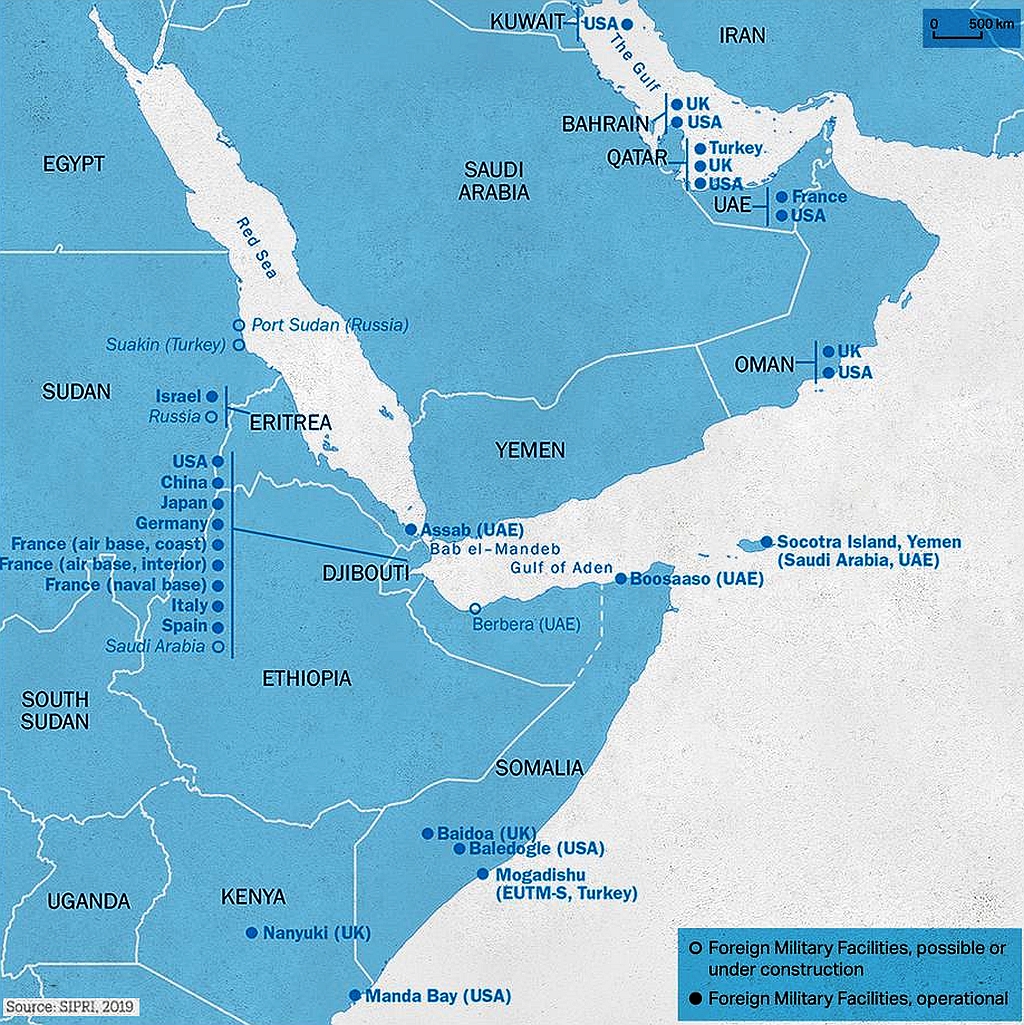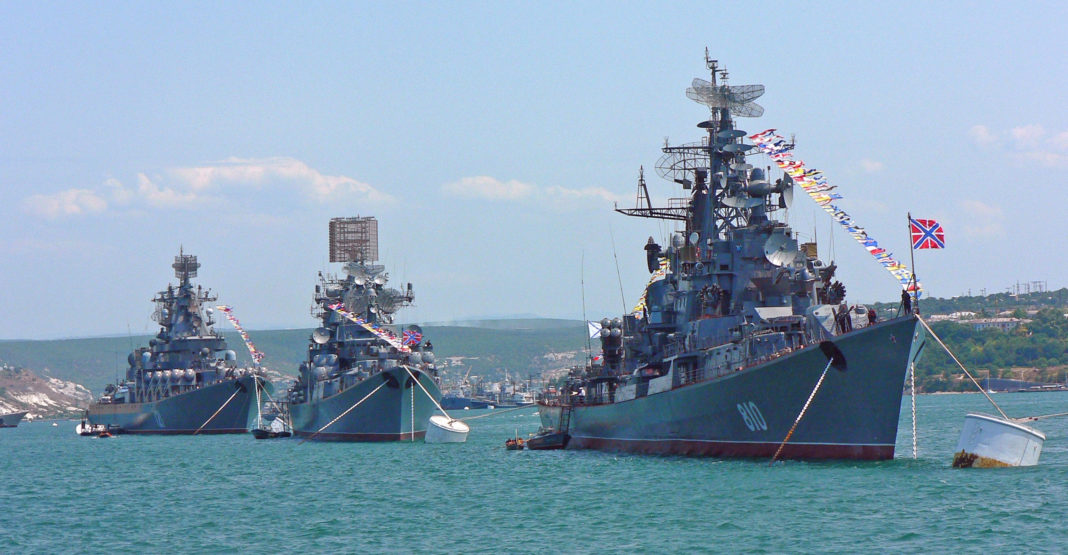According to Russian media reports, Russia has signed an agreement with Sudan to establish a naval base on the Red Sea for at least a quarter of a century. This is described as part of Moscow’s efforts to extend its global reach.
The agreement published on Tuesday on the official portal for government documents allows Russia to simultaneously station up to four naval vessels – including nuclear-powered vessels – in Port Sudan on the Red Sea or to supply them there. The agreement has a term of 25 years and can be automatically extended by ten years if neither party objects. https://www.youtube.com/watch?v=2m6nw6YTO3o The document states that “the Russian naval base is intended to contribute to strengthening peace and stability in the region and is not directed against third parties.” In return for Sudan’s permission to establish the base, Russia will supply Sudan with weapons and military equipment. Back in 2018, Sudan’s then air force chief, Lieutenant General Pilot Salah al-Din Abdel-Khalig Saed, announced to Militär Aktuell that he was also interested in Su-35 fighter jets. The draft contract published by Russia basically envisages – initially – a logistics and repair base on the Red Sea. The Russian navy would be allowed to station up to 300 military personnel there. As far as nuclear-powered ships are concerned, this could primarily mean submarines, as the Russian fleet only has one operational nuclear-powered cruiser, the “Pyotr Veliki” (Peter the Great). A second one is currently being modernized. “It’s a tense region,“ said former admiral and Chief of Staff of the Russian Navy Viktor Kravchenko in an interview with the INTERFAX news agency: “The Russian naval presence there is necessary for the time being. Later, it can develop into a larger, ‘fully-fledged’ base.” Whether a billion-ruble project or a PR campaign, the new agreement certainly fits in with Moscow’s overarching efforts to re-establish a regular naval presence in various parts of the world. Russia’s military footprint dwindled after the collapse of the Soviets in 1991 due to economic problems and financial constraints, but President Vladimir Putin has steadily sought to broaden the nation’s military footprint – not least in light of new tensions with the West, particularly since the Ukraine crisis. This includes bomber patrols around the British Isles and as far afield as the Caribbean, South Africa and Japan. Thanks to a naval base in the Syrian port of Tartus – currently Russia’s only facility outside the former Soviet Union – the Russian fleet has already established a significant presence in the Mediterranean. Active since September 2015 in a military campaign to support the government of President Bashar Assad in the country with air assets and special forces – a decisive factor in the war – Moscow extended the lease for Tartus by 49 years in 2017. Since then, the facility has been modernized and expanded to be able to supply and operate up to eleven warships there.

After Tartus, Port Sudan would now be the second Russian naval base abroad in the Middle East and North Africa, a region that is becoming increasingly important for Moscow – apart from the annexed Crimea, where the Black Sea Fleet has always been stationed. In Soviet times, the navy once had bases in Vietnam, but also in Ethiopia and Somalia, in response to the US naval base Diego Garcia in the Indian Ocean. The British-Sudanese commentator Kholood Khair from “Insight Strategy Partners” (ISP), a think-and-do tank in Sudan’s capital (also an expert on political events in Sudan for Al-Jazeera, among others), recalls (see YouTube video below) that at a meeting with Putin in 2017, the now deposed head of state al-Bashir railed against the USA and described Sudan as “Russia’s key to Africa”. Even then, he brought up the idea of a naval base, apparently as protection against Washington. At the time, Sudan was on the US red list of terrorism supporters and al-Bashir had been indicted by the International Criminal Court (ICC) for war crimes in Darfur. There is also still an EU arms embargo in place – while Russia supplied MiG-29S. Since the fall of al-Bashir in April 2019, Sudan has been governed by a so-called “Sovereign Council” made up of civilians and military personnel. However, the military has much more weight, according to Ms. Khair. Russia has retained its contacts in Khartoum thanks to General Mohamed Hamdan Dagalo, known in Sudan only as “Hemeti”. He is the deputy chairman of that council and, according to Ms. Khair, the most influential man in the country. Moscow has now agreed the base agreement with him. This was preceded by the first Russia-Africa summit in Sochi in the fall of 2019, which was also attended by the new Sudanese leadership. https://www.youtube.com/watch?v=3GeZlKk2x70&feature=emb_logo
Ms. Khair recalls that Russia used to back al-Bashir and now backs Hemeti, partly because it has a stake in Sudan’s most profitable commodity: Gold. “There are very reliable sources that Russian soldiers and Russian private security companies are guarding the gold mines in the north, which are said to be linked to Hemeti.” Gold is one of the main sources of income for the Sudanese economy, which has been battered by sanctions, corruption and inflation. Further south, at the end of the Red Sea in Djibouti, the USA, France and, more recently, China also have naval bases. And in India – always concerned about the Chinese in the Indian Ocean (for example in Gajdar, Pakistan) – some people are already thinking about the possible “guest use” of the future Russian base by the Indian navy (see YouTube video). https://www.youtube.com/watch?v=T03rRPGtTKQ










